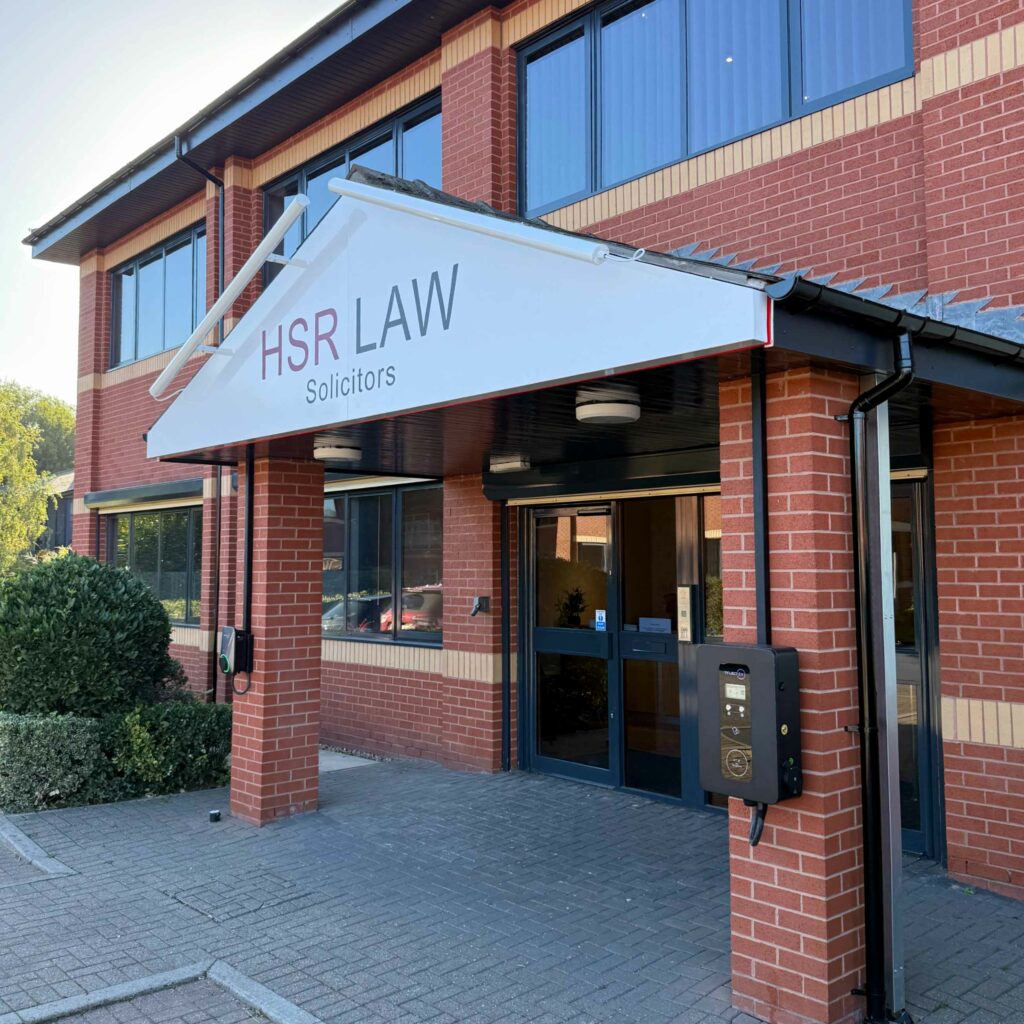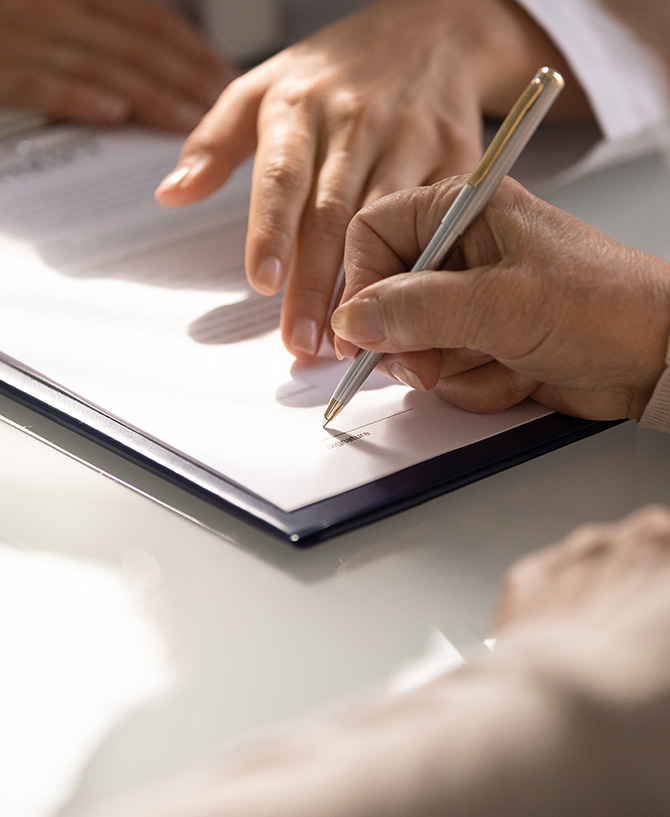What is a Lasting Powers of Attorney Certificate Provider
A Lasting Powers of Attorney (LPA) is a vital legal document that allows a person (the donor) to appoint one or more attorneys to make decisions about their property & finances or their health & welfare if they lose the mental capacity to decide for themselves. For an LPA to be valid, the form must include a signed certificate from an independent person known as the Lasting Powers of Attorney Certificate Provider. That certificate is the safeguard that helps protect donors from abuse, undue pressure or decisions made when they lack capacity.

What does the Lasting Power of Attorney Certificate Provider do?
The certificate provider’s role is short but crucial. They must confirm that:
- the donor understands what an LPA is and the powers they are giving to their attorneys;
- the donor is not being coerced or pressured into making the LPA; and
- there are no other legal reasons why the LPA should not be made.
They sign Section 10 of the LPA form, and their signature must be dated on the same day or after the donor signs Section 9. In many cases the certificate provider will speak privately to the donor to make sure those conditions are satisfied before signing.
Who can act as an LPA certificate provider?
There are two broad categories of certificate provider:
- A “qualified” professional – That is someone used to assessing capacity or with relevant professional skills, such as solicitors, doctors, social workers, or certain health professionals. This is often the safest choice where capacity or undue influence might be a concern.
- A “lay” person – Usually a trusted friend, colleague or neighbour who has known the donor well for at least two years. A lay certificate provider must be independent and able to give an honest, impartial view.
There are also clear exclusions. Close family members of the donor or of the chosen attorneys, business partners, employees, or others with a vested interest in the donor’s affairs should not act as the certificate provider. The Law Society and official guidance make this explicit: independence is essential.
Why does getting the right LPA certificate provider matter?
Errors or inappropriate choices for the certificate provider are a common reason LPAs are rejected or delayed by the Office of the Public Guardian (OPG). If the certificate is completed incorrectly, or if the person chosen is disqualified or cannot honestly certify the donor’s capacity and freedom from undue pressure, the LPA registration can be refused, creating costly delays just when families need access to someone to manage affairs.
Practical tips for donors and families when choosing a Lasting Powers of Attorney Certificate Provider
- Choose a professional if in doubt. If you or the donor has any concerns about capacity, stress, family tension or complex finances, using a solicitor, GP or other qualified professional as the certificate provider will reduce the risk of later challenge.
- Choose an independent lay person who really knows the donor. A neighbour met once won’t do. A lay certificate provider should have known the donor for at least two years and be able to speak from direct knowledge.
- Check the order of signatures. The donor signs Section 9 first, then the certificate provider signs Section 10 on the same day or later, and only after that do the attorneys sign. Getting the order wrong is an avoidable technical error.
How can HSR Law help with your Lasting Powers of Attorney?
HSR Law are experienced Lasting Powers of Attorney Solicitors and can provide a full service including advising on whether an LPA is the right option, drafting the form, acting as a certificate provider where appropriate, and dealing with the registration process with the Office of the Public Guardian.
Choosing to use HSR Law can be especially helpful if you suspect capacity may be borderline, family relationships are strained, or you simply want assurance the form is completed and signed correctly to avoid registration delays.

Making Powers of Attorney – Why use a solicitor?
The creation of a Lasting Powers of Attorney document and the registration process can be extremely onerous if you are not familiar with legal terms or procedures, and potentially the final document you end up with may not actually work in the way you need it to. In this article our expert lasting powers of attorney solicitors explain the LPA process and why using a solicitor can help ensure accuracy… read more
What if something goes wrong?
If a Lasting Powers of Attorney is challenged after registration, for example, because it’s alleged the donor lacked capacity or was coerced, the Court of Protection may need to decide whether the LPA is valid. That’s why getting competent, independent certification at the outset is the most effective way to reduce future disputes.
Solicitors who act as certificate providers or who prepare Lasting Powers of Attorney may also advise or represent parties if issues arise.
Final thoughts
The Lasting Powers of Attorney certificate provider is often an overlooked but essential safeguard in the LPA process. Picking the right person and ensuring the correct signing procedure, can mean the difference between a smoothly registered document and months of delay or a legal challenge. If you’re preparing an LPA and want to reduce risk, experienced legal advice will help you choose a suitable certificate provider and make sure the form is completed in line with Office of the Public Guardian expectations.

We’re here to help
Our specialist Lasting Powers of Attorney (LPA) team can advise you from start to finish on the LPA procedure from creation to registration of the document. We will discuss who you would like to appoint as your Attorney or Attorneys and their suitability to do so, and in which way to appoint them. We will consider with you whether or not to include any guidance or instructions to your Attorneys for specific matters, and we will ensure all relevant signatures are obtained in a timely manner, and will undertake the registration process on your behalf.
Please contact Emma, Kelly or Laura for more details or to arrange an appointment at any of our offices. Home visits may also be available for those who are unable to travel to an office.
Lasting Powers of Attorney FAQs
A certificate provider can be either a qualified professional such as a solicitor, doctor, or social worker, or a trusted lay person who has known the donor well for at least two years. They must be independent and not a close relative or anyone involved in managing the donor’s affairs. HSR Law advise that choosing a qualified professional is often the safest option, especially if capacity or family tensions are a concern.
The certificate provider confirms the donor understands the LPA and is making it freely without pressure. Their certification is essential to ensure the LPA is valid and to protect the donor from abuse or undue influence. HSR Law say that proper certification at the outset is the most effective way to prevent future disputes or challenges to the LPA.
If the certificate provider section is incomplete, signed in the wrong order, or the person chosen is not eligible, the Office of the Public Guardian may reject or delay the LPA registration. HSR Law note that professional guidance from a solicitor can help ensure the form is correctly completed and minimise the risk of delays or refusal.



